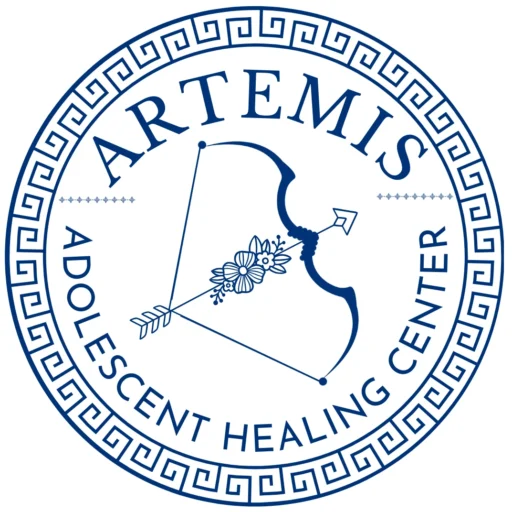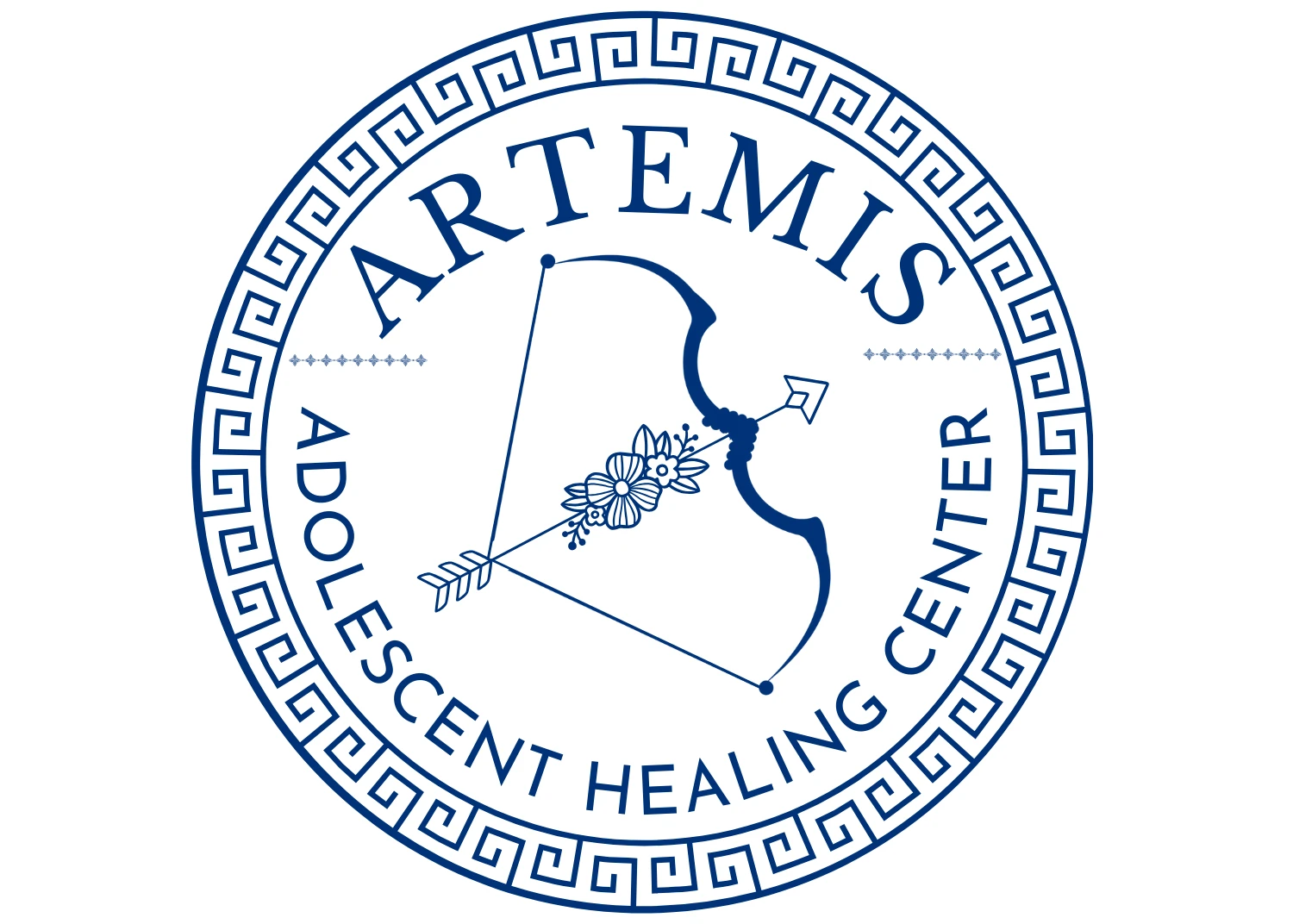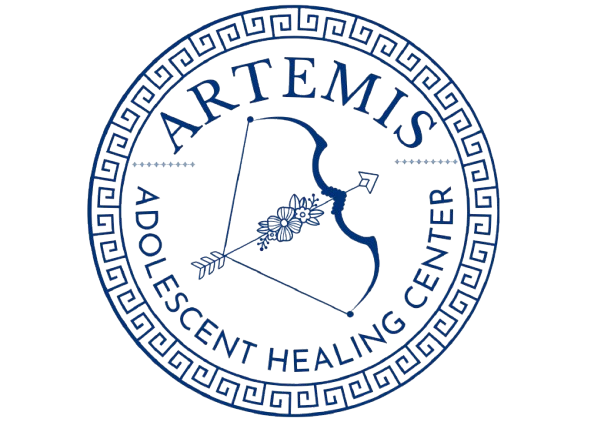Evidence-Based Family Counseling to Support Dysfunctional Youth
Families don’t plan for conflict, but tension at home with your teen can easily take over daily life.
From mood swings and constant arguments to risky decisions like drug and alcohol use, you find yourself feeling powerless against your teen.
There has to be something that helps though, right?
Functional family therapy (FFT) can help you understand why your teen is struggling. Parents start to see behavioral problems with empathy and teens start to communicate more. By collaborating to solve problems, your teen’s behavior improves and you grow closer.
At Artemis Adolescent Healing Center, FFT principles are woven into our programs to help entire families heal. Keep reading to learn more about his effective and evidence based approach to helping struggling teens.
Get Effective Treatment for Eating Disorder at Artemis
What is Functional Family Therapy (FFT)?
When teens are struggling with aggression, delinquency, substance use, or other issues, parents may consider functional family therapy (FFT) to help. It focuses on improving communication, trust, and conflict resolution between teens and their parents. As your relationship with your teen starts to heal, it leads to less conflict and negative behavior.
There is no blame-assigning in family-functional therapy. It starts with identifying the things that your family is doing right, then builds on that. These are called protective factors.
FFT also helps identify and address risk factors. For example, negative peer influence, poor communication, or high family conflict.
Through these processes, family members collaborate. Parents and teens work together to create positive family change. It can also address community systems and make sure your teen has positive peer relationships, too.
Why Do Families of At-Risk Youth Turn to FFT?

You might consider FFT when the typical methods of grounding, yelling, or even therapy haven’t helped your teen’s risky behaviors, like defiance, substance use, a conduct disorder, or even truancy. Some families come to Artemis for Functional Family Therapy after school suspensions or legal involvement, while others seek help before it gets to this point.
You don’t have to wait for the worst to happen to address family patterns that need support. Functional family therapy (FFT) can be an early intervention strategy.
The FFT clinical model recognizes that with teenagers, behavioral or emotional problems aren’t always caused by something internal. They are influenced by their relationship with you. By decreasing family hostility, functional family therapy makes your teen more willing to collaborate and make positive change.
FFT Shows a Statistically Significant Reduction in Risky Behavior
Functional family therapy is proven to work through decades of research that compared teens with certain risk factors to a control group receiving standard treatment. FFT reduces behaviors like aggression, defiance, and substance abuse. It also focuses on the protective factors, or those things different family members are doing to support your teen.
Behind the numbers are families like yours who have seen lasting change. Functional family counseling helps your teen manage tough emotions, communicate better, and take responsibility for their choices. You also learn how to guide and support them, taking an active role in their recovery.
Get Accredited Treatment Programs at Artemis
Does My Child Have to Be in the Juvenile Justice System for FFT to be Effective?
FFT intervention strategies were originally developed for kids at-risk, including those in trouble with the law and child welfare systems, as well as for clients at child welfare facilities. This doesn’t mean that your teen has to be in real trouble to see the benefits, though.
The family-based structure of FFT has helped teens struggling with anxiety, depression, trauma, and substance use. Even if you just want to improve communication and reduce family negativity, functional family counseling can help.
At Artemis, we incorporate FFT principles to help families navigate emotional, behavioral, and communication challenges. All family relationships should heal, regardless of legal or probationary involvement.
How Does Family-Based Prevention Lead to Positive Behavior Change?

Your teen’s risky behaviors are symptoms, not the root of the problem. FFT looks closer at family dynamics and individual family members’ behaviors, communication styles, and stress responses. Each of these shapes your teen’s behavior. It determines whether they respond with defiance and anger, or collaboration and a respectful attitude.
When parents can respond differently to defiance or emotional shutdowns, it leads to more understanding. There’s less tension, and better family patterns.
From empathy, consistency, and shared goals, this type of family-based prevention creates a cycle of positive behavior change. It’s also a useful tool for avoiding drug or mental health relapse. Families learn to create relapse prevention plans, helping teens manage stress, avoid triggers, and maintain progress after therapy.
What is the Role of Relational Assessment in Functional Family Therapy?
One of the most important tools in functional family therapy is relational assessment. Essentially, this is a structured process that shows how family members interact with one another and the family unit. It’s not about identifying “what’s wrong”.
Instead, therapists explore why certain behaviors are happening and what needs your teen might be trying to communicate. This focus on relevant family processes helps therapists see the full picture of how emotions and communication patterns affect individual family members.
For example, if your teen is always arguing with you, it might be a sign they need autonomy. Recognizing this gives parents the chance to adjust how they approach scenarios, setting boundaries and helping reduce family conflict. It brings insight into what’s happening that can help you move from reaction to understanding.
What are the Four Phases of Functional Family Therapy (FFT)?

FFT is a structured, four-phase process for addressing family functioning. It is a short-term family intervention split into several sessions. With the right support, families move from crisis to stability. Teens (and parents) find themselves better equipped to handle future challenges.
- Engagement and Motivation: This stage is important for building trust and reducing defensiveness that makes it harder to work together.
- Relational Assessment: Here, therapists start to understand interaction patterns and emotional needs.
- Behavior Change : This stage helps family members practice communication and problem-solving skills.
- Generalization: Once crisis in family relationships is dealt with, the same lessons of FFT can be applied to school, friendships, community, and daily life.
With functional family therapy, each phase builds on the last. Your teen (and your whole family) find a structured path toward sustainable change.
Functional Family Therapy vs Other Family Therapy Models
FFT is often compared to Multi-Systemic Therapy (MST), another evidence-based model recommended for teens with certain risk factors. Both types of family therapy focus on your teen’s environment and family relationships, but FFT focuses more on relational understanding and communication patterns.
At Artemis, we don’t believe in a one-size-fits-all approach. Our team is trained in the FFT model, but we also use other approaches depending on what works best for your teen. Some other modalities that might be used include:
- Cognitive Behavioral Therapy (CBT)
- Dialectical Behavior Therapy (DBT)
- Trauma-Informed Care
- Multi-Systemic Therapy
- And other evidence-based approaches as well
By blending multiple approaches, your teen receives care that meets their unique needs. This leads to better treatment outcomes, both right now and in the long-term.
How Do I Know if Functional Family Therapy Is Right For My Teenager?
FFT isn’t the right approach for every family, but it can help if your teen is showing defiance, isolating, or engaging in risky behaviors like substance abuse. It can also help with ongoing arguments, emotional distance, or a loss of trust.
As many family members can be affected by your teen’s behaviors, better family functioning benefits everyone.
How Does Artemis Integrate FFT Into Teen Treatment?

We believe that looking at family functioning can help whole families heal together. Most families benefit from FFT-informed techniques that improve communication, rebuild relationships, and create supportive environments where teens can thrive.
When it’s believed it will help, FFT is used as part of our full continuum of care for mental health and substance abuse. This includes residential, partial hospitalization (PHP), intensive outpatient (IOP), and other programs, all of them Joint Commission accredited.
As treatment progresses, FFT might be used to create relapse prevention plans tailored to their teen’s triggers and needs. This helps your teen stay on the right path.
Up To 100% of Rehab Costs Covered By Insurance
Find Support for Your Teen to Heal at Artemis Today
The teenage years bring on challenges for many kids (and their parents), but it shouldn’t feel overwhelming. Let Artemis Adolescent Healing Center support you through it.
The FFT techniques that we use help you and your teen rebuild communication, trust, and stability, one conversation at a time.
Reach out confidentially to learn more about how healing is possible for your teen and your family.






